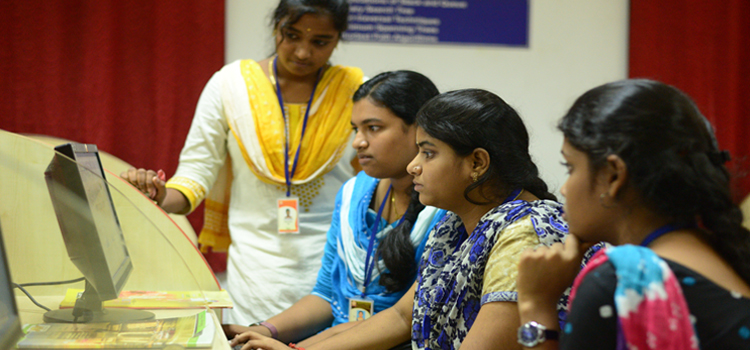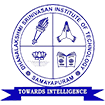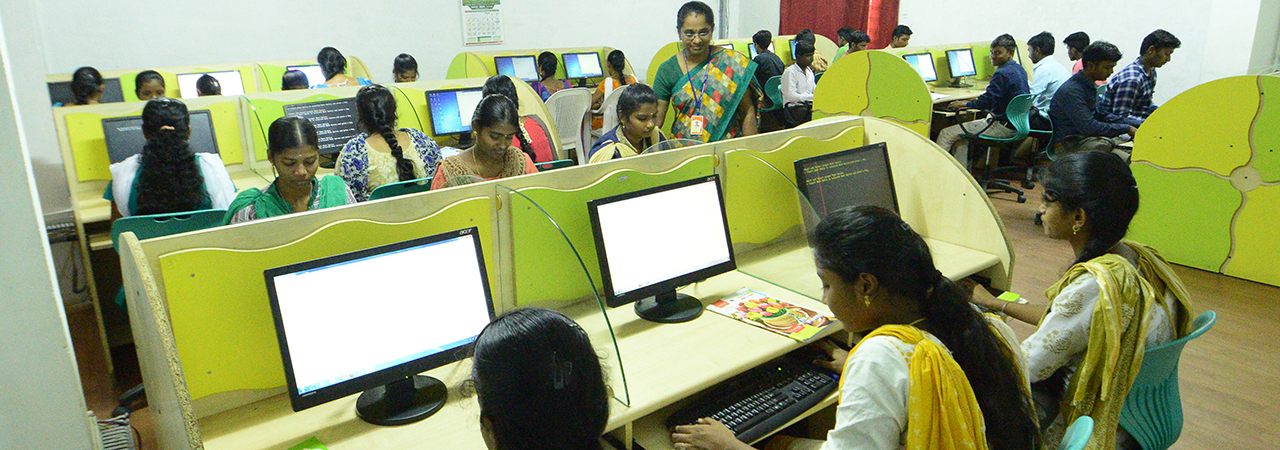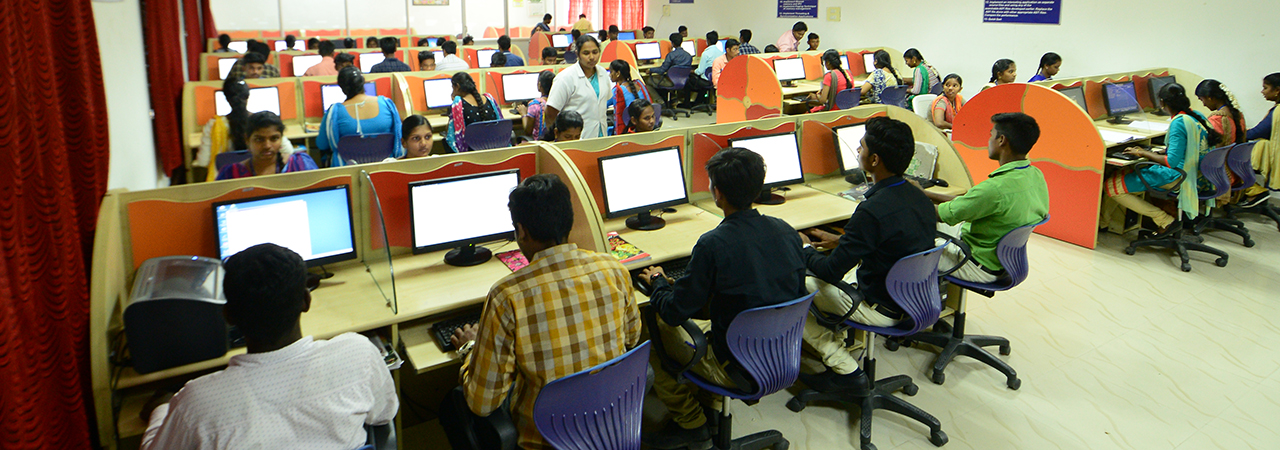About the Department

The Department of Computer Science and Engineering with its cohesive team of faculty members, offers a sound program at the UG as well as the PG levels. The curriculum is a blend of the conventional and theradical. It is updated regularly to keep up with the growing demands and the changing trends of the software industry and research laboratories. Core courses include Programming Languages, Computer Architecture,System Software, Networking Technologies and Artificial Intelligence.
The Department is committed
- To promote Research and Development in the frontier areas of Information Technology.
- To generate Competent Professionals to become part of the Industry and Research Organizations at the National and International levels.
- To provide necessary strengths to enable the Students to Innovate and become Entrepreneurs.
Programme Educational Objectives (PEOs)
- PEO 1: Excel in their career by acquiring knowledge in computing and engineering principles.
- PEO 2: Undertake leadership roles in industry, business and/or their communities
- PEO 3: Enable to engage in recent professional development and stay up to date in their field of work.
- PEO 4: Contribute to the economic environment for their society based on the ethical values existed.
Programme Outcome (POs)
- PO1: Engineering Knowledge: Strong foundation in core Computer Science and Engineering, both theoretical and applied concepts
- PO2: Problem Analysis: Identify, Formulate, Ability to apply knowledge of mathematics, science and engineering to real-life problem solving and reaching validated conclusions related to computer science.
- PO3: Design/Development of solutions: Ability to analyze, design, model, and develop complex software and information management systems that meet the specified needs with appropriate consideration for the public health and Safety and the cultural societal and environmental considerations.
- PO4: Conduct Investigations of Complex problems: Ability to use research– based knowledge and study methods including analysis, design, coding implementation, testing and interpretation of data, to provide valid Conclusions.
- PO5: Modern Tool Usage: Convention of recent techniques, modern engineering and IT tools with an understanding of the limitations.
- PO6: The Engineer and Society: Apply Reasoning informed by the contextual knowledge to assess societal, health, safety, legal and cultural issues and the consequent responsibilities relevant to the Computer Science and engineering Practice.
- PO7: Environment and Sustainability: Understanding the impact of Computer Science and Engineering solutions in the societal and human context.
- PO8: Ethics: Understand and apply professional ethical responsibility
- PO9: Individual and Team Work: Ability to function effectively within teams in Software projects.
- PO10: Communication: Ability to communicate effectively, both in writing and oral makes effective presentations to provide and obtain clear instructions.
- PO11: Project Management and Finance: Demonstrate knowledge and understanding of the engineering management principles and apply these to one’s own work, as a member and leader in a team, to manage projects and in multi-disciplinary environments.
- PO12: Life-Long Learning: Recognize the need for and have the preparation and ability to engage in independent and life-long learning.
Programme Specific Outcome (PSO)
- PSO1: Foundation of mathematical concepts: To use mathematical methodologies to crack problem using suitable mathematical analysis, data structure and suitable algorithm.
- PSO2: Foundation of Computer System: The ability to interpret the fundamental concepts, methodology of computer systems and to understand the functionality of hardware and software aspects.
- PSO3: Foundations of Software development: The ability to grasp the software development lifecycle and methodologies of software systems. Possess competent skills and knowledge of software design process.




